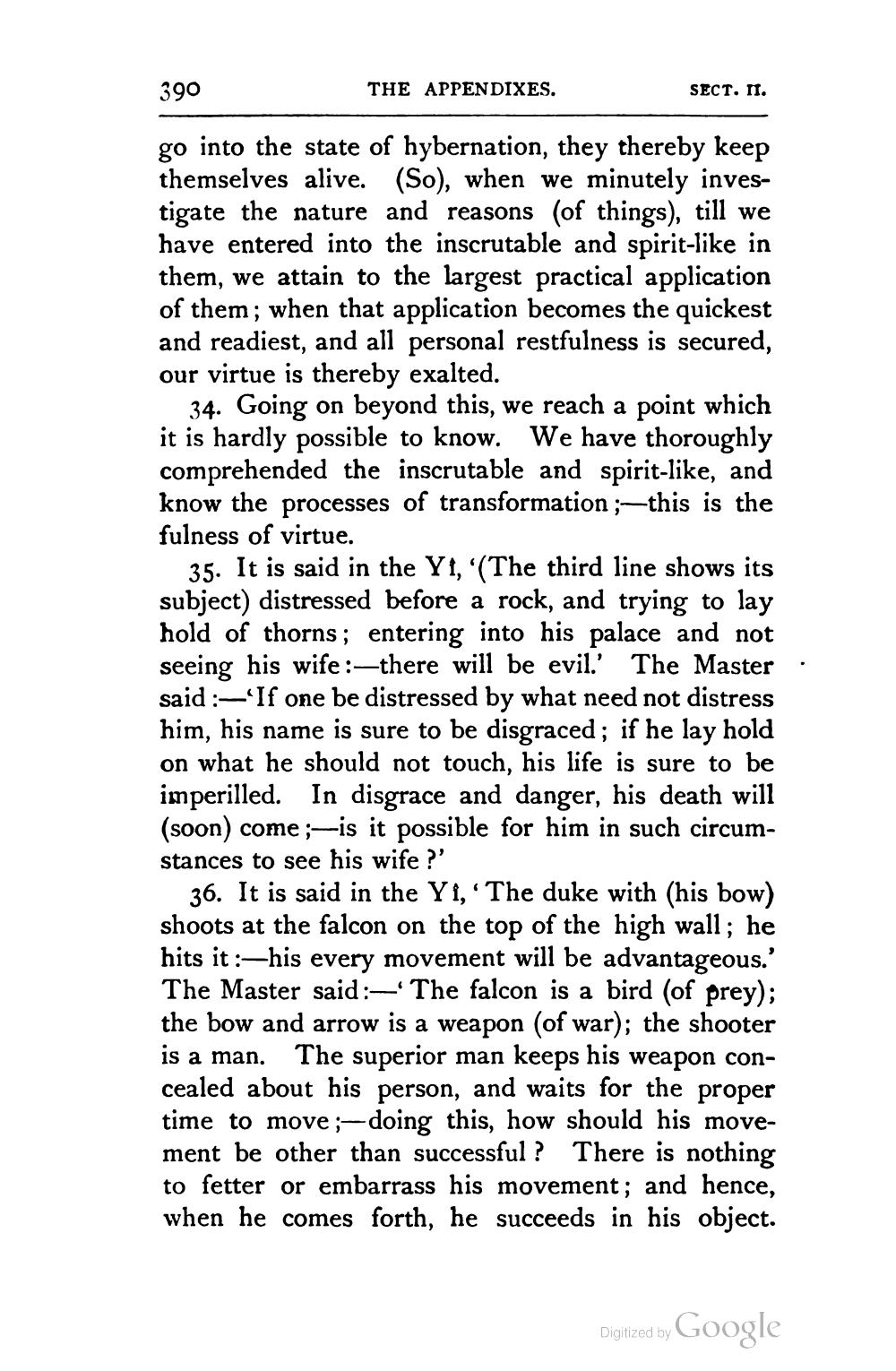________________
390
THE APPENDIXES.
SECT. II.
go into the state of hybernation, they thereby keep themselves alive. (So), when we minutely investigate the nature and reasons (of things), till we have entered into the inscrutable and spirit-like in them, we attain to the largest practical application of them; when that application becomes the quickest and readiest, and all personal restfulness is secured, our virtue is thereby exalted.
34. Going on beyond this, we reach a point which it is hardly possible to know. We have thoroughly comprehended the inscrutable and spirit-like, and know the processes of transformation ;—this is the fulness of virtue.
35. It is said in the Y1,'(The third line shows its subject) distressed before a rock, and trying to lay hold of thorns; entering into his palace and not seeing his wife:—there will be evil. The Master said: 'If one be distressed by what need not distress him, his name is sure to be disgraced; if he lay hold on what he should not touch, his life is sure to be imperilled. In disgrace and danger, his death will (soon) come ;-is it possible for him in such circumstances to see his wife ?'
36. It is said in the Yi, 'The duke with (his bow) shoots at the falcon on the top of the high wall; he hits it :-his every movement will be advantageous.' The Master said: The falcon is a bird (of prey); the bow and arrow is a weapon (of war); the shooter is a man. The superior man keeps his weapon concealed about his person, and waits for the proper time to move ;-doing this, how should his movement be other than successful ? There is nothing to fetter or embarrass his movement; and hence, when he comes forth, he succeeds in his object.
Digitized by Google




